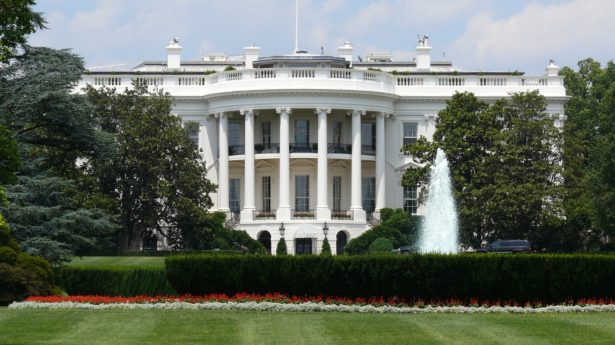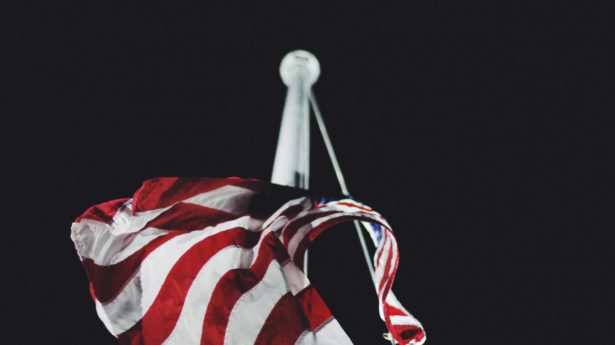The Unitarian Universalist Service Committee advances human rights through grassroots collaborations.
No President Should Have the Power to Discriminate

By on October 24, 2019
Since coming to office, President Trump has repeatedly implemented sweeping bans of whole categories of immigrants, unfairly denying entry to people based solely on where they come from, what religion they practice, and how much money they possess. One of this administration’s first acts after the inauguration was to follow through on Trump’s repeated threats on the campaign trail to “ban” all Muslim people from the country. In January 2017, they announced categorical exclusions of refugees and travelers from several Muslim-majority countries, violating essential principles of equal treatment and religious freedom.
In June 2018, the Supreme Court chose to uphold a version of this so-called “travel ban” affecting Muslim-majority countries. This decision set a dangerous precedent that emboldened the administration to try to ban other immigrant groups they have stigmatized. With a sharply diminished sense of the limits of their authority, the administration has since then announced two regulations barring asylum for the vast majority of migrants arriving at the southern U.S. border. Although a federal court blocked the first of these bans, the Supreme Court recently allowed the second to go into effect.
Now, the administration is proclaiming one of its most far-reaching travel bans yet: denying admission to immigrants who do not have health insurance and cannot prove they would be able to pay for healthcare in the United States without it. (While some groups of immigrants, such as refugees and asylum-seekers, are exempt by law from this ban, the administration is putting up new barriers for asylum-seekers and refugees by other means.) Cruelly, Trump’s proclamation states that subsidized plans available under the Affordable Care Act would not count as fulfilling the new insurance requirement for immigrants seeking admission.
If allowed to go into effect, this ban would have disastrous and far-reaching consequences. An analysis by the Migration Policy Institute estimates that as many as two-thirds of people currently applying for U.S. green cards from other countries could be denied entry under the new policy. This change would primarily affect people applying for family-based immigration preferences, meaning that hundreds of thousands of U.S. citizens and long-term permanent residents would lose the ability to reunite with their family members abroad. In essence, this policy would amount to a vast new system of family separation.
The administration’s health insurance exclusion is likely to be as far-reaching in its effects as its earlier “public charge” rule (recently placed on hold by a federal judge), which also cruelly targets immigrants with modest financial means. Whereas the earlier regulation went through a year-long rulemaking process, during which the public submitted hundreds of thousands of comments in opposition, the president this time bypassed the required notice-and-comment period for major federal policy changes. Instead, Trump announced his ban quietly on a Friday evening as a presidential proclamation, saying it would go into effect in thirty days.
Like the administration’s previous “bans,” the health insurance exclusion is primarily aimed at working-class immigrants of color. The racism and classism underlying these policies is not difficult to perceive. Not only did Trump as a candidate explicitly call for a “ban” on Muslim immigrants and refugees, he has also repeatedly used demeaning and profane language to refer to immigrants from Central America, Africa, and elsewhere in the Global South. Most recently, media reports emerged that the president has privately urged administration officials to shoot migrants and asylum-seekers arriving at the border, showing just what he thinks about the worth of the people who are seeking asylum.
Plainly, the administration feels emboldened by the Supreme Court’s earlier decisions to enact more of its discriminatory and racist agenda by executive fiat. In announcing this latest and perhaps most far-reaching ban, for instance, Trump invoked the same statutory authority he used to defend the Muslim ban, namely 8 U.S. Code 1182(f). This section reads in part: “Whenever the President finds that the entry of any aliens or of any class of aliens into the United States would be detrimental to the interests of the United States, he may by proclamation […] suspend the entry of all aliens or any class of aliens as immigrants or nonimmigrants[.]”
Such a sweeping grant of executive power should never have been interpreted to allow the president to override fundamental Constitutional norms, including the right to freedom of religion and the equal protection of the laws. In a context in which the Supreme Court has already approved several of the president’s discriminatory bans, however, the dangers of this section of U.S. law are all too clear.
For this reason, members of Congress in both the House and the Senate introduced legislation to rewrite this section. In May, 2019, Rep. Judy Chu of California – one of two Unitarian Universalists currently serving in Congress – introduced the NO BAN Act (H.R.2214) to limit the president’s authority to enact sweeping bans, compel the executive to justify such exclusions on rational, fair, and non-discriminatory grounds, and rescind several of Trump’s previous wholesale bans. This bill is a companion measure to S.1123, introduced by Senator Chris Coons in April 2019.
Of course, even if these bills successfully pass the House and the Senate, they are unlikely to survive a presidential veto. Nevertheless, advancing these bills would send a strong signal that Congress rejects the misuse of executive power in the interests of discriminatory, harmful, and unjust ends. Passage of these bills would also set an important precedent for future efforts to ensure that no president is able to proclaim racist and unconstitutional exclusions of whole groups of people. Contact your legislator today to let them know you support the NO BAN Act and similar legislative action to undo the president’s travel bans.
Photo Credit: iStock – Juanmonino
***
About UUSC: Guided by the belief that all people have inherent worth and dignity, UUSC advances human rights globally by partnering with affected communities who are confronting injustice, mobilizing to challenge oppressive systems, and inspiring and sustaining spiritually grounded activism for justice. We invite you to join us in this journey toward realizing a better future!

